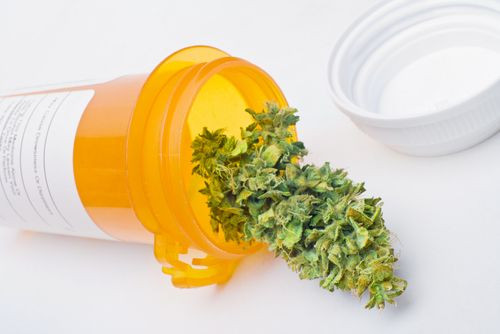Medical Marijuana Laws Lead To More Adult Pot Smoking, But Not To Hard Drugs

Relaxing marijuana laws, whether for medical purposes or for recreational use, gives rise to fears of… well, exactly what happened last month in Denver — visiting student Levy Thamba, 19, jumped to his death from a hotel balcony after eating marijuana-infused cookies. Now, a new study conducted by the National Bureau of Economic Research (NBER) found that though medical marijuana laws have led to substantially higher rates of cannabis use, it does not act as a gateway drug, leading to other, harder substances.
Currently, 21 states and the District of Columbia have passed laws that permit marijuana use for medical purposes. In order to test the effects of such laws, the researchers examined adolescent and adult marijuana, alcohol, and hard drug use in seven medical marijuana states between 2004 and 2011. What did they discover?
For those older than 21, medical marijuana laws led to a hefty 16 percent increase in cannabis use, a 12 to 17 percent increase in frequency, and a considerable 15 to 27 percent increase in marijuana abuse/dependence.
For those between 12 and 20 living in states with medical marijuana laws, marijuana initiation increased by five to six percent but their binge drinking behavior was not affected whatsoever. Among those over 21, medical marijuana laws boosted the frequency of binge drinking by six to nine percent. For all age groups, though, these laws had no impact on hard drug use.
Taken together, the researchers of the NBER study wrote, “[medical marijuana law] implementation increases marijuana use mainly among those over 21, where there is also a spillover effect of increased binge drinking, but there is no evidence of spillovers to other substance use.”
In all likelihood, some of the fears surrounding relaxed marijuana laws are probably justified. After all, the truth about anything is generally found not at either extreme but somewhere in the middle. Parents worry about their teenages trying pot and the effects it might have on their childrens' still-developing brains. The NBER study suggests their fears are valid, and a recent scientific study suggests pot smoking causes neurological damage even among casual smokers. Medical marijuana and recreational pot are both evolving issues. Thankfully, laws are not written in stone.
Source: Wen H, Hockenberry JM, Cummings JR. The Effect of Medical Marijuana Laws on Marijuana, Alcohol, and Hard Drug Use. The National Bureau of Economic Research. 2014.
Published by Medicaldaily.com



























